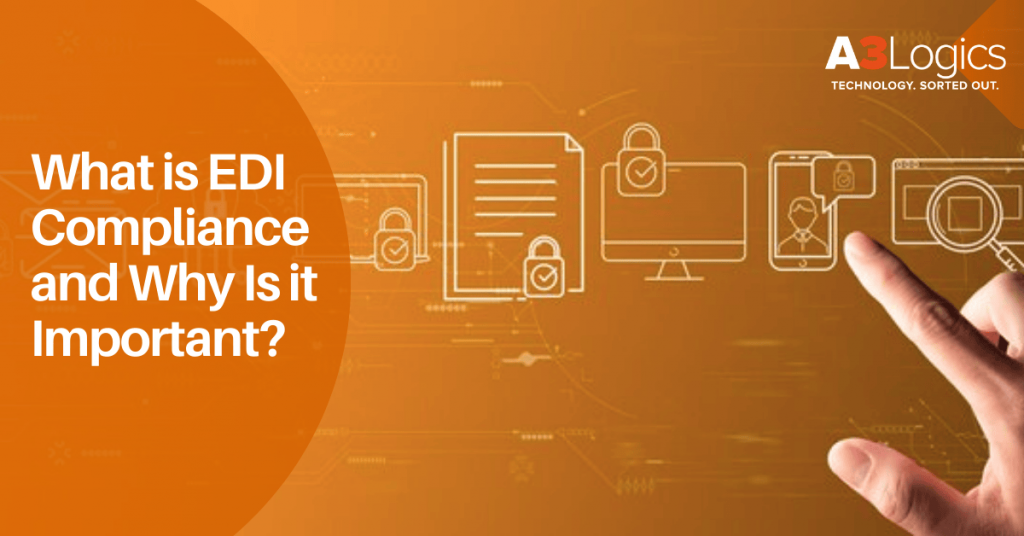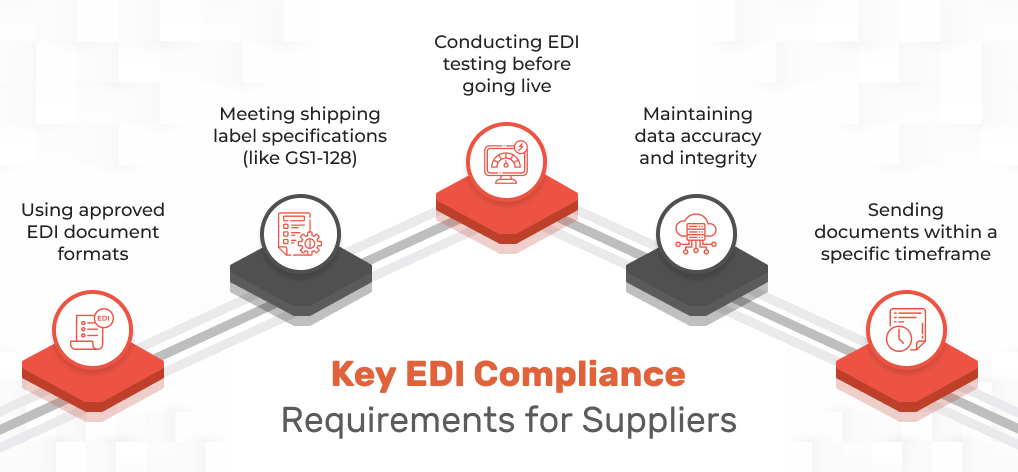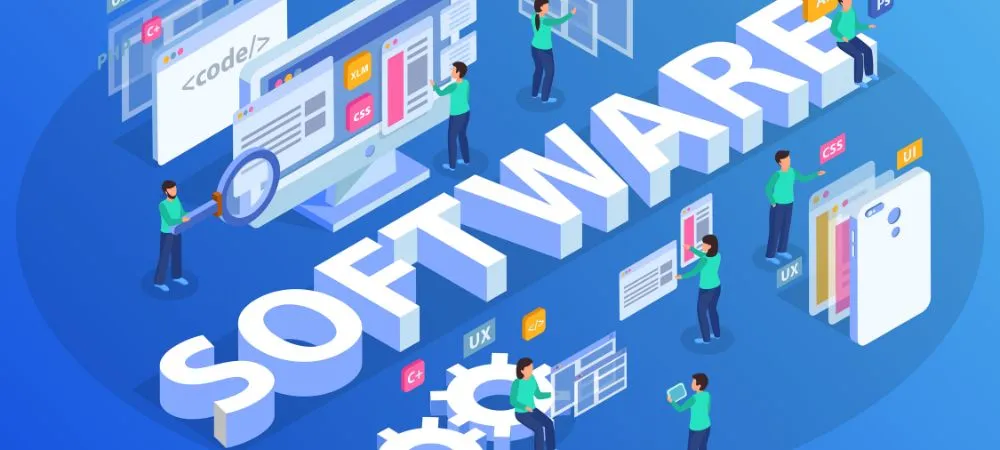Are you thinking about enhancing efficiency of your business operations? The best possible way to boost the accuracy of your business delivery is through accurate delivery of the business data. This is where Electronic Data Interchange can make things easy for you. Implying this technology can help you in automating the transfer of business documents with businesses around the world. But, using EDI will not be enough. You need to make sure that it is in EDI compliance with the set standards to avoid all kinds of penalties.
Organizations have to guarantee EDI Compliance if they want to prevent expensive mistakes, fines, and missed commercial prospects. This implies following trading partners’ or regulatory authorities’ rigorous criteria for formatting, security, and timeliness. Here in this post we are going to discuss all the aspects related to EDI Compliance, its significance, how to attain it, and its effects on several sectors.

Table of Contents
EDI Compliance: Overview
EDI Compliance is the process of following the particular standards, formats, and protocols demanded by trading partners or industry rules while exchanging business documents electronically. This guarantees that every EDI transaction, such as purchase orders, invoices, and shipping notices, is organized, sent, and acknowledged in a way that satisfies all criteria.
Being EDI Compliant implies your systems can consistently send, receive, and process EDI documents according to your partners’ requirements, utilizing authorized formats and communication protocols. This means guaranteeing the safe and quick transfer of information, using the appropriate document types, and following agreed-upon data standards.
For instance, in retail, EDI standards are required for suppliers to deal with major chains; in healthcare, EDI HIPAA Compliance is required for managing patient data. Automating and controlling these procedures depends much on EDI services and EDI compliance software.
Why is EDI Compliance Important?
There are several reasons for you to focus on EDI Compliance and some of the essential ones are mentioned below. Check it out.
1. Error Reduction
EDI Compliance requires consistent formats, hence removing manual data entry mistakes including typos and misinterpretations. Automated validation guarantees data accuracy, hence lowering expensive order, invoice, or shipment errors. This streamlines transactions across supply chains by reducing conflicts, refunds, and delays.
2. Operational Efficiency
Automated EDI transactions speed business processes, hence allowing real-time order processing, inventory adjustments, and quicker fulfilment. Replacing manual chores helps companies to lower cycle times, increase responsiveness, and boost departmental output.
3. Cost Savings
EDI eliminates paper-based processes, cutting printing, mailing, and labor costs. Automation reduces administrative overhead and prevents chargebacks from non-compliance, boosting profitability.
4. Security and Privacy
EDI protocols use encryption and secure transmission methods, critical for EDI HIPAA Compliance in healthcare. This safeguards sensitive data against breaches, ensuring confidentiality and regulatory adherence.
5. Regulatory Adherence
Industries include healthcare (HIPAA) and retail require EDI Compliance. Meeting these criteria guarantees smooth integration with controlled partners and helps to avoid legal penalties.
6. Business Relationships
Compliance demonstrates reliability, fostering trust with partners. Consistent adherence strengthens collaborations, reduces friction, and positions businesses as preferred suppliers.
7. Avoiding Penalties
Non-compliance triggers chargebacks for errors like late ASNs or incorrect invoices. Compliance prevents financial penalties and maintains partner satisfaction.
So, this shows why EDI Compliance is important for smooth, secure, and successful business operations. But, the real question is how to become EDI compliant, below we have it answered for you. Read on.

How to Become EDI Compliant
When it comes to achieving EDI Compliance, it involves several steps that includes technology, process, and ongoing management all together for the best of results. Check it out.
1. Understand Your Trading Partner’s EDI Requirements
Every trading partner could have particular EDI requirements including document kinds, data formats, communication protocols, and deadlines. The first stage to being EDI Capable is knowing these needs.
Common Standards:
- ANSI X12 (USA): The primary EDI standard in North America, used across industries.
- EDIFACT (International): The global standard, widely used in international trade.
- TRADACOMS (UK Retail): Common in the UK retail sector.
- HL7 (Healthcare): Used for clinical and administrative data exchange in healthcare.
2. Choose the Right EDI Solution
Selecting the right technology is crucial for EDI Compliance:
- On-premise EDI Software: Installed and managed on your servers, offering control but requiring IT resources.
- Cloud-based EDI: Hosted solutions offering scalability, lower upfront costs, and easier updates.
- EDI Outsourcing Services: Third-party providers manage your EDI operations, ensuring compliance and freeing up internal resources.
Modern EDI Compliance Software automates data conversion, validation, and communication, reducing manual intervention and error risk.
3. Set Up EDI Document Types (Transactions)
Configure your EDI system to handle the specific document types required by your partners, such as:
- 850 – Purchase Order: Initiates a purchase transaction.
- 810 – Invoice: Requests payment for goods or services.
- 856 – Advance Ship Notice (ASN): Provides shipment details before delivery.
- 940 – Warehouse Shipping Order: Directs warehouse to ship goods.
- 997 – Functional Acknowledgment: Confirms receipt and acceptance of EDI documents.
In healthcare, EDI 834 Services (enrollment and maintenance) are critical for EDI HIPAA Compliance.
4. Test Your EDI Setup
Testing ensures your EDI transactions meet partner requirements:
- Validate data against partner specifications.
- Test connectivity and transmission.
- Perform end-to-end transaction testing to confirm correct data flow and acknowledgments.
5. Monitor and Maintain EDI Compliance
EDI Compliance requires ongoing attention. To begin with, regularly monitor your transactions for errors, failed transmissions, or format changes. Additionally, use automated alerts and dashboards to maintain real-time oversight. Furthermore, conducting periodic audits ensures continued adherence as standards or partner requirements evolve.
6. Get Certified (Optional but Recommended)
Certification demonstrates your commitment to EDI Compliance and may be required in regulated industries:
- HIPAA EDI Certification: Mandatory for healthcare organizations handling protected health information.
- GS1 Standards Compliance: Essential for retail and supply chain operations.
- ISO/IEC Standards: Recognized for global operations.
What are EDI Chargebacks?
EDI Chargebacks are financial penalties imposed by trading partners when a supplier fails to meet EDI requirements. These penalties offset the costs incurred by the partner due to errors, delays, or non-compliance.
Types of EDI Chargebacks
1. ASN (Advance Ship Notice) Related Chargebacks
Late, missing, or incorrect ASNs disrupt supply chain visibility, leading to penalties. Common issues include mismatched purchase order numbers, missing shipment details, or delayed notifications. For example, Amazon imposes automatic chargebacks for ASN errors, such as incorrect carrier codes or missed deadlines, which can cripple supplier profitability.
2. Invoice (EDI 810) Related Chargebacks
Errors in invoicing—such as incorrect pricing, missing line items, or delayed submissions—often trigger chargebacks. As a result, these delays disrupt payment cycles, strain cash flow, and lead to deductions from payments. Furthermore, retailers like Walmart penalize suppliers for invoice discrepancies, gradually compounding revenue losses over time.
3. Purchase Order (EDI 850) Related Chargebacks
Incorrect or incomplete purchase order processing—such as wrong quantities, invalid item codes, or formatting errors—can ultimately lead to chargebacks. As a result, retailers often penalize suppliers for mismatched data. This is because such discrepancies directly disrupt inventory planning and, consequently, affect fulfillment workflows.
4. Shipping and Routing Related Chargebacks
Using unauthorized carriers, shipping to incorrect locations, or missing delivery windows results in penalties. For instance, Amazon’s routing request chargebacks apply if suppliers fail to submit accurate shipping destinations within specified timeframes.
5. Labeling and Packaging Chargebacks
Non-compliant packaging (e.g., missing GS1-128 labels) or damaged barcodes incur penalties. Retailers like Target enforce strict labeling rules, and errors like unreadable barcodes or mislabeled boxes directly trigger chargebacks.
6. Data Validation and Completeness Chargebacks
Missing or inaccurate data in EDI documents—such as mismatched quantities between purchase orders and shipments—can quickly lead to penalties. Consequently, retailers automatically flag these discrepancies and deduct fees for incomplete or invalid data fields.
7. Functional Acknowledgment (EDI 997) Related Issues
Failing to send timely EDI 997 acknowledgments—which confirm document receipt and validity—results in penalties. Missing or delayed acknowledgments disrupt transaction workflows, signaling non-compliance to partners.
Impact of Chargebacks
Chargebacks not only erode profits through recurring penalties but also strain supplier-retailer relationships and damage reputations. Therefore, implementing automated monitoring and robust EDI compliance tools is essential to mitigate these financial and operational risks.
Chargebacks can quickly erode profits and damage relationships, making EDI Compliance and robust monitoring essential.

Understanding EDI Compliance Requirements by Industry
1. EDI Compliance in Logistics
Logistics providers depend on EDI Services to automate shipment orders, confirmations, and tracking. Compliance ensures accurate, real-time data exchange between shippers, carriers, and customers, reducing delays and errors.
2. Healthcare EDI Compliance
Healthcare organizations must adhere to EDI HIPAA Compliance standards by using transaction sets like EDI 837 (claims) and EDI 834 (enrollment). In doing so, they ensure secure, standardized, and confidential data exchange—an essential requirement for patient privacy and regulatory compliance. Moreover, EDI automation in healthcare streamlines administrative processes, minimizes manual errors, and significantly accelerates claims processing.
3. EDI Compliance in Insurance
Insurance companies use EDI for policy administration, claims processing, and payments. Compliance ensures accurate, timely communication with providers, regulators, and partners, reducing disputes and accelerating settlements.
4. EDI Compliance in Retail
Retailers enforce strict EDI requirements to manage large supplier networks. Compliance is mandatory for doing business with major retailers, impacting everything from order fulfillment to inventory management. Non-compliance can result in chargebacks, delisting, or lost business.
Common Challenges Businesses Face in EDI Compliance
Achieving and maintaining EDI Compliance is not without obstacles. Below is an elaboration of the key challenges businesses encounter:
1. Managing Multiple Standards
Businesses often collaborate with partners using different EDI standards (e.g., ANSI X12, EDIFACT, HL7), requiring support for diverse document types and formats. This complexity grows when operating globally or across industries, necessitating constant translation and validation efforts. Failure to align with partner-specific standards risks transaction errors, delays, and compliance violations.
2. Data Accuracy
Inaccurate or incomplete data—such as mismatched product codes or missing fields—triggers transaction rejections, chargebacks, and supply chain disruptions. Manual data entry or poor validation mechanisms exacerbate errors, leading to costly reconciliations and strained relationships.
3. Security and Privacy
Protecting sensitive data (e.g., payment details, healthcare records) demands robust encryption, access controls, and compliance with regulations like HIPAA. Breaches or non-compliance risk legal penalties, reputational damage, and loss of partner trust, particularly in healthcare (EDI HIPAA Compliance).
4. Resource Constraints
Implementing EDI Compliance Software and maintaining systems requires significant investment in IT infrastructure, skilled personnel, and ongoing training. Small businesses often struggle with upfront costs and technical expertise, leading to suboptimal compliance or reliance on third-party EDI Services.
5. Continuous Updates
EDI standards, partner requirements, and regulations evolve constantly. Businesses must monitor changes (e.g., new document versions, security protocols) and update systems promptly. Neglecting updates risks non-compliance, transaction failures, and competitive disadvantage.
Mitigation Strategies
- Adopt flexible EDI Compliance Software that supports multiple standards and automates data validation.
- Implement automated mapping tools to reduce manual errors and ensure data accuracy.
- Leverage cloud-based EDI solutions to minimize infrastructure costs and scalability challenges.
- Partner with EDI Consulting Services for expertise in compliance updates and system maintenance.
- Conduct regular audits to preemptively address security gaps and evolving standards.
By addressing these challenges proactively, businesses can ensure seamless, secure, and compliant EDI operations.
Get EDI Compliant with A3Logics Professional EDI Services
Using protocols such AS2, FTP/SFTP, and APIs, A3Logics provides end-to-end EDI integration and automation, hence harmoniously linking your systems with trading partners. Eliminating manual errors and speeding up transactions, their solutions guarantee secure data transfer between ERP, CRM, and supply chain systems.
At the heart of their offerings is customization, which includes specialized processes to fit certain trading partner needs. A3Logics guarantees compliance across sectors including healthcare, retail, and logistics by matching your EDI configuration with partner-specific formats whether you are adhering to ANSI X12, EDIFACT, or HL7 standards.
Their continuous assistance consists of compliance updates, proactive problem solving, and 24/7 monitoring. While automated notifications highlight anomalies, real-time dashboards provide transaction status, hence reducing chargeback risk.
For specialized needs, A3Logics offers:
- EDI HIPAA Compliance: Secure handling of protected health information (PHI) through encrypted transactions and audit trails.
- EDI 834 Services: Streamlined benefits enrollment and maintenance for insurance carriers, ensuring accurate member data exchange.
- EDI Payments: Automated invoicing and payment reconciliation to reduce delays and improve cash flow.
Companies using A3Logics‘ EDI Consulting Services have access to professionals in charge of partner onboarding, mapping, and translation. From migration to staff training, their managed EDI services take care of everything, hence allowing companies to become EDI Capable fast and avoid fines while promoting scalable expansion.
A3Logics enables companies to concentrate on innovation, lower operating expenses, and enhance alliances by means of smooth, consistent data transfer by giving EDI Automation in Healthcare, retail, and logistics top priority.
Final Thought on EDI Compliance
Hopefully you have complete clarity about how EDI Compliance is the primary element of modern business operations. It helps businesses of all sectors with efficient and secure delivery of their services. So, whether you’re in the retail sector or healthcare or in any other options, making sure to be EDI Compliant has become a mandate. It will make it easy for your business to stay in competition. If you are looking for experts to help you with your needs of robust EDI Compliance Software, then you must not think twice and consider connecting with the experts at A3Logics. You get all the aspects covered to perfection!
Businesses can guarantee smooth, safe, and effective data interchange by giving EDI Compliance top priority, using cutting-edge EDI Compliance Software, and working with reliable EDI Services providers. This will help them drive operational excellence and long-term expansion.






